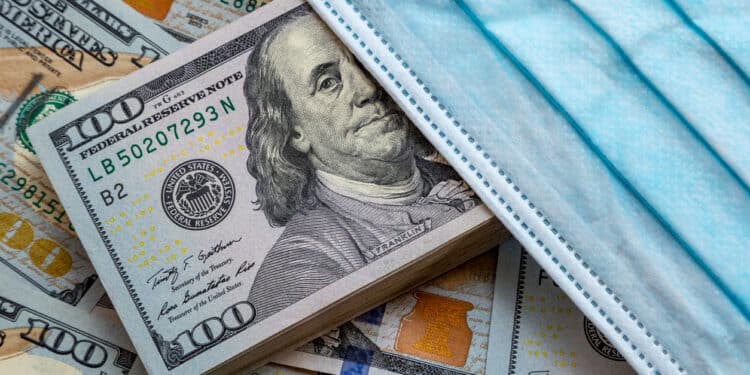Congress allocated a total of $669 billion to the Small Business Association (SBA) and the Paycheck Protection Program (PPP) so that businesses across the country could seek relief in one of our country’s most trying times.
Then, the problems started. Not only did the PPP loan process get off to a confusing and shaky start, but many unqualified taxpayers took the launch of pandemic-relief programs as an opportunity to defraud the government out of millions of dollars.
And now, the government is looking to recoup those costs.
In a March 2021 memorandum from the House Select Subcommittee on the Coronavirus Crisis, the group stated that the U.S. Treasury Department had given away approximately $79 billion in potentially fraudulent Economic Injury Disaster Loans (EIDL), with PPP lenders handing out another $4 billion in possibly fraudulent loans.
The government has already made clear that its focus is currently on high-profile enforcement cases (including a taxpayer who used his $3.9 million PPP loan to purchase a Lamborghini), but it is likely that small and mid-sized taxpayers will face audits down the line.
According to the Fraud Section of the Department of Justice (DOJ) Criminal Division, as it relates to PPP fraud, the department has prosecuted more than 100 defendants connected to more than 70 criminal cases. These efforts led to more than $60 million in collected proceeds since January 2021 from fraudulently obtained PPP monies. As of March 2021, that number grew to $626 million in collected monies.
The DOJ announced its first settlement of alleged False Claims Act (FCA) violations back in January 2021, with the charges stemming from an ill-gotten PPP loan. The defendants, Slide Belts, Inc. and its president and CEO, agreed to pay $100,000 in damages and penalties to resolve the FCA and Financial Institutions Reform, Recovery and Enforcement Act (FIRREA) issues.
In another case, four California residents were convicted in a scheme that sought millions in illegitimate PPP and EIDL funds. The defendants, who were found guilty of conspiracy to commit bank, wire fraud, and money laundering, are now having to forfeit bank accounts, personal valuables and property, as well as nearly $450,000 in cash.
Certain fraudulent activities and crimes alleged by the government have included:
- Bank Fraud
- False Statements to a Financial Institution
- Money Laundering
- Falsified Documents and Statements
- Misuse of Loan Proceeds
These cases show the reality of PPP fraud and the government’s willingness to put resources toward this area of enforcement.
As a part of its investigations, the government will be looking for taxpayers to have documented and preserved all information related to their PPP or other CARES act relief programs, including third-party communications and bank records. Proper substantiation for loan qualification will be a necessity. Companies will also need to adhere to a level of veracity as they start applying for PPP loan forgiveness as well.
According to one U.S. Attorney from the District of Nevada, taxpayers should expect a “tidal wave” of pandemic related fraud investigations and prosecutions to come down in the next year.
The FCA allows individuals who know of fraud to bring suit (filed by qui tam whistleblowers) on behalf of the government and receive a portion of monies collected from the fraudster. The FCA has a storied history, having helped the government recoup billions of dollars in misappropriated funds, and will undoubtedly play a critical role in rooting out pandemic-related fraud for the next several years.
The government will also likely be receiving help from third party companies who will be surveying publicly available data for potential cases of fraud stemming from Coronavirus relief.
The bottom line? This area of fraud will be a priority for the government for the next several years. Those who are aware of information concerning any pandemic-related misrepresentations would be wise to seek counsel and work to assist the government in rooting out this fraud.




